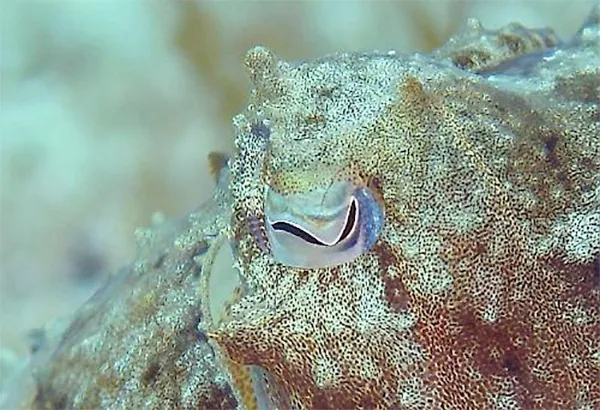Cuttlefish have HD polarization vision
Polarization vision is used to break the countershading camouflage of light-reflecting silvery fish researchers suggest.
Cuttlefish and their colorblind cousins, squid and octopus, see aspects of light, including polarized light, that are invisible to humans
Cephalopods are sensitive to the linear polarization characteristics of light. To examine if this polarization sensitivity plays a role in the predatory behaviour of cuttlefish, scientists from the University of Bristol examined the preference of cuttlefish Sepia officinalis when presented with fish whose polarization reflection was greatly reduced versus fish whose polarization reflection was not affected.
Cuttlefish preyed preferably on fish with normal polarization reflection over fish that did not reflect linearly polarized light implying that polarization sensitivity is used during predation.
In addition to measuring the limits of polarization vision in the cuttlefish, the team also modelled how underwater scenes might look to an animal that has such high-resolution polarization vision. Using colours instead of changes in polarization angle they created images of the polarized world that humans can see and showed that there is much more information available in the polarization dimension than was previously known.
These extraordinary findings suggest that we need to reexamine how we have been measuring the visual world underwater. Cuttlefish may be using the polarization of light much like we use colour, which means we may need to look at camouflage and communication underwater in a whole new way.
Co-author Professor Justin Marshall of The University of Queensland
- Log in to post comments




























